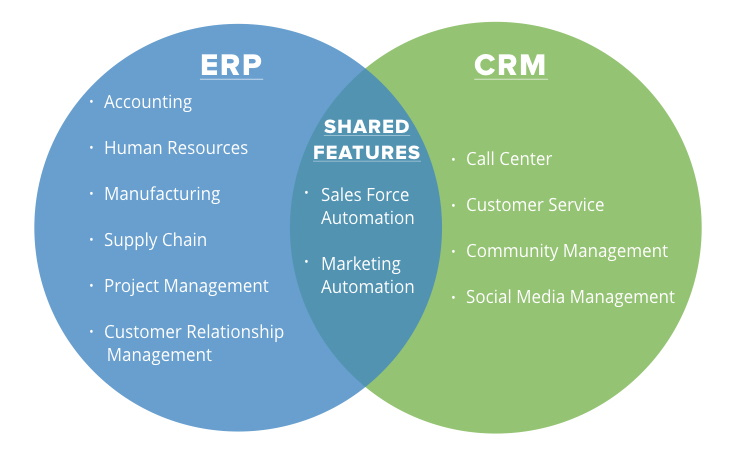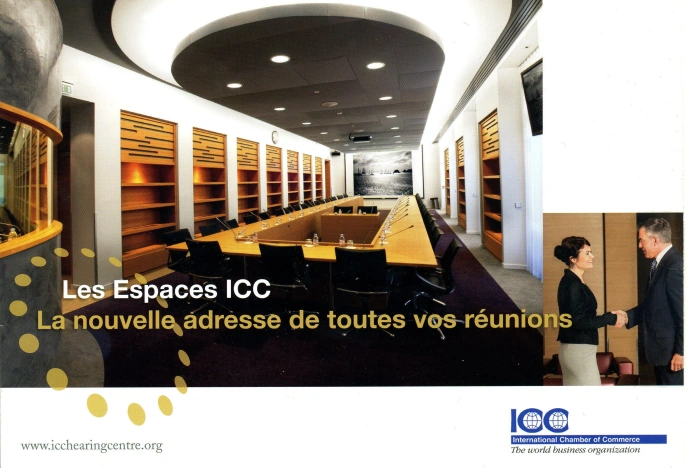ERP & CRM Are Big Business
Enterprise-level customer relationship management (CRM) and enterprise resource planning (ERP) installations are big business. System integration contracts for the largest clients are often priced at hundreds of millions of dollars. ERP and CRM are close cousins, and have grown towards each other over the years, yet one aspect has not changed: when a large contract goes over budget by 10%, this is 10% of a huge number, and lawsuits get filed. The same response is common when projects budgeted at hundreds of millions of dollars get scrapped.

The level of CRM customization generally tends to be very high because marketing and sales processes tend to be very customer-specific. Similarly, the level of ERP customization can also be very high unless the customer’s back office procedures were designed to match the vendor’s idealized procedures, and this is seldom the case. Customization is expensive and is often difficult to manage perfectly because of unique requirements that are often not explicitly or fully stated.
The 5 largest ERP software vendors in 2020 are, in decreasing order of annual sales: SAP, Oracle, Microsoft, Infor, and IFS. The 5 largest CRM vendors, in order, are Salesforce, Adobe, Oracle, SAP, and Microsoft.
Whose Side Am I On?

After reading through a draft of this article I became concerned that it seemed to place most of the blame for failed ERP and CRM projects on customers. That would be inaccurate because customers rely on software vendors, system integrators and consultants to design, implement, install and often maintain ERP / CRM systems. For convenience, let’s collectively call those 3 types of entities suppliers.
Just as customers in general have issues and are rarely completely fault-free, suppliers in general also have issues and are rarely completely fault-free. One source of problems is that for systems of this size, sales people are not personally accountable for the overall success. Instead, sales people are motivated by short-term considerations (making the sale), and often have moved on to other opportunities before long-term considerations such as implementation success and realizing customer value.
Lots of articles are about how to avoid ERP/CRM failure. I am not going to belabor them here. Instead, I just wish to say that each situation is unique, people are inherently selfish and political, and whenever projects requiring clarity of purpose and constancy of vision are initiated that require significant resource and time there are potentially many types of suboptimal outcomes.
ERP Installation Failures
From a recent article in CIO Magazine entitled 16 famous ERP disasters, dustups and disappointments:
But after a spate of high-profile failures, there are signs that vendors and customers alike are working hard to ensure the success of their ERP projects. Panorama Consulting Solutions, which regularly surveys businesses on the outcomes of their ERP projects, found in 2015 that just 58 percent of organizations rated their latest project a success, while by 2019 that figure had risen to 88 percent.
Nothing ever goes 100% as planned, that is just how life is. Large, long-term contracts with lots of custom integration will have varied outcomes. New litigation just needs means, motive and opportunity.
Standard Components vs. Custom Software
In life, the path well-traveled is generally safe because most people traverse it without incident. Blazing a new trail is generally fraught with peril, often from unexpected sources, yet this is where innovation and fresh opportunity arise. Programming interfaces (APIs) exhibit the same phenomenon: using standard, well-used interfaces tends to be cheaper than designing and building custom interfaces. That said, sometimes bold measures are easily justified, and it makes sense to attempt to develop new technology to address an urgent need / opportunity.

Litigation is often contemplated when costs are exceeded because:
-
Diagnosing software is generally a difficult task,
... so problems lurking within custom interfaces may not be immediately evident. -
Debugging software is often even harder than diagnosing problems,
... so fixes to custom software may be slow to be made available. -
Building software is labor-intensive and custom software is amortized over only a single company’s needs,
... so custom software is expensive and takes a long time to build.
When Suppliers are Blamed
I don’t mean to suggest that customers always blame their suppliers, but this does happen and is often easy to spot if one knows where to look. Conversely, all organizations are imperfect and so are the people who staff them. Problems arise. This is normal. I merely offer technical opinions in response to specific questions. Yes, I strive to achieve a wholistic understanding of any circumstance that I encounter as an expert witness, but that is only to provide meaning to my personal journey. This information that I am providing right now does not in any way describe the totality of all possible circumstances.

Earlier I quoted an article from CIO Magazine. An unhappy SAP customer (Leaseplan) said in their Q2 2019 financial results:
As a software expert, the above paragraph just leaves me shaking my head in disbelief. That paragraph is very wrong on many levels. I won’t go into the details here.
Leaseplan also stated they “planned to build a modular system using best-of-breed third-party components alongside its existing predictive maintenance, insurance claim and contract management systems. It expected this to be more scalable and allow incremental product deployments and updates.” These statements by Leaseplan sound like complete garbage to me, and other industry professionals such as Shaun Snapp of Brightwork Research & Analysis agree. However, I do not concur with many of Mr. Snapp’s other statements. I expect that Leaseplan’s current system integrator will be sued next.
Summary
Plaintiffs and defendants sometimes use the courts as a venue for high-stakes negotiations. Timing is generally coordinated with the expected remaining term of the plaintiff’s senior executives. I don’t mean to suggest that suppliers are always blameless. When they make mistakes, they should be held accountable.
The point of this article is to state that sometimes the simple essence of a case can be heavily obfuscated by the unstated motives of one or more of the parties. As an expert, I must have no vested interest in the outcome. Instead, an expert can only provide value when addressing the technical fundamentals of a case, and those fundamentals by definition cannot be influenced by politics. Ignorance of political and economic forces can make a naïve expert an unwitting pawn. I strive to become aware of all factors pertaining to a case, even non-technical factors, so I can provide unbiased and well-considered opinions.

Acknowledgement
I would like to thank Eur Ing Professor Geoffrey M. Beresford Hartwell CEng for his thoughful review and advice.
References
- International Chamber of Commerce
- Publicis/SAP arbitration settlement
- Alphabet Soup, Oh My! What You Really Need to Know About ERP vs CRM
- 5 largest ERP software vendors
- 5 largest CRM vendors
- Avoid ERP/CRM failure
- 16 famous ERP disasters, dustups and disappointments
- Leaseplan Q2 2019 financial results
- Shaun Snapp of Brightwork Research & Analysis
- Eur Ing Professor Geoffrey M. Beresford Hartwell CEng















